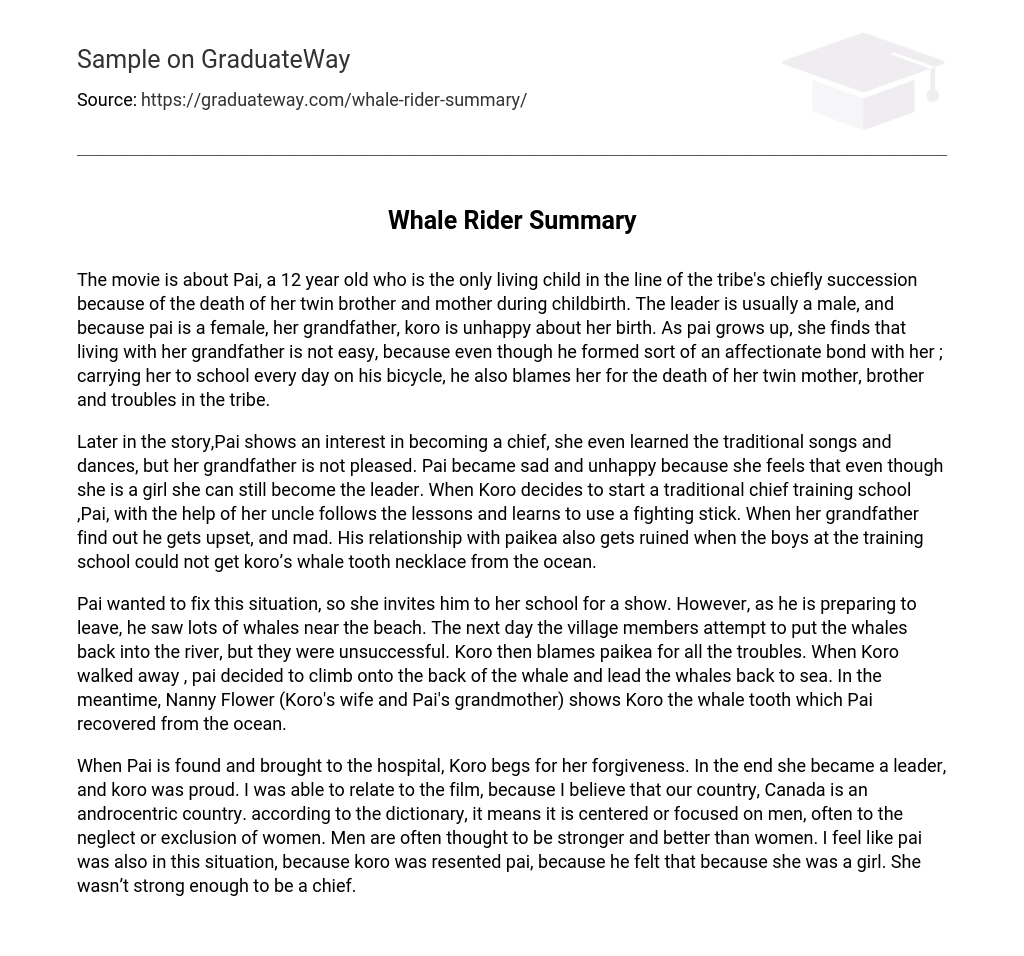The movie tells the story of Pai, a twelve-year-old girl who is the only remaining child in her tribe’s line of succession due to the deaths of her twin brother and mother during childbirth. Tradition dictates that the tribe’s leader be male, so Pai’s grandfather, Koro, is unhappy about her birth. Despite forming a somewhat affectionate bond with her – he carries her to school every day on his bicycle – her grandfather also holds her responsible for the deaths and troubles within the tribe.
Later in the story, Pai demonstrates her desire to become a chief by learning the traditional songs and dances. However, her grandfather is not pleased with her aspirations, causing Pai to feel sad and unhappy. Despite her being a girl, Pai firmly believes she can still become a leader. Koro’s decision to establish a traditional chief training school presents an opportunity for Pai. With the assistance of her uncle, she participates in the lessons and masters the use of a fighting stick. Upon discovering this, her grandfather becomes upset and angry. Furthermore, his relationship with Paikea is damaged when the boys at the training school fail to retrieve Koro’s whale tooth necklace from the ocean.
Pai attempted to solve the problem by inviting him to her school for a performance, but while he was preparing to leave, he spotted numerous whales close to the shore. The following day, the villagers made an unsuccessful attempt to guide the whales back into the river. This led Koro to hold Paikea responsible for all the challenges they faced. Once Koro departed, Pai decided to climb onto the whale’s back and direct them back into the sea. At the same time, Nanny Flower (Koro’s wife and Pai’s grandmother) presented Koro with the whale tooth that Pai had discovered in the ocean.
When Pai is discovered and brought to the hospital, Koro pleads for her forgiveness. Ultimately, she emerges as a leader, and Koro is filled with pride. Personally, I could relate to this film because I believe that Canada, our country, is an androcentric nation. According to the dictionary, this means it is centered or focused on men, often at the expense or exclusion of women. Men are frequently perceived as stronger and superior to women. Thus, I see similarities between Pai’s predicament and our own societal situation in Canada. Koro resented Pai based on her gender, as he believed she lacked the strength required to become a chief.





